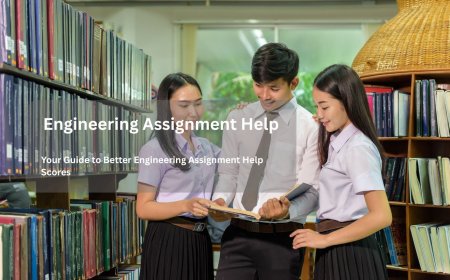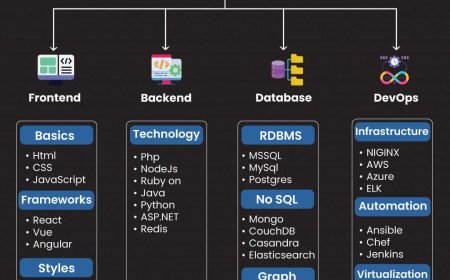What is the best way to prepare for the IELTS?
In this article we will discus about What is the best way to prepare for the IELTS and also discus about Focus on Each IELTS Module
Introduction
The International English Language Testing System (IELTS) is one of the most trusted exams for assessing English language proficiency. It is widely accepted for study, work, and migration purposes across countries like the UK, Canada, Australia, and New Zealand. Preparing for the IELTS is not just about learning English; its about mastering the tests specific skills and strategies. Many test?takers wonder, What is the best way to prepare for the IELTS? The answer lies in a structured, balanced approach that improves your reading, writing, listening, and speaking skills while familiarizing you with the exam format. In this article, we will explore proven strategies and tips to prepare effectively for the IELTS exam so that you can achieve your desired band score with confidence.
What are the IELTS Format?
Before you dive into practice, make sure you understand the test structure. IELTS has two main versions:
-
IELTS Academic for higher education and professional registration.
-
IELTS General Training for migration and work purposes.
Both versions assess four skills:
-
Listening
-
Reading
-
Writing
-
Speaking
Each section has its own timing and question types. Knowing these in advance saves you from surprises on test day.
Develop a Study Plan
Set Clear Goals
Decide your target band score based on the university, employer, or immigration requirement. Setting a clear goal keeps your preparation focused.
Create a Timetable
-
Allocate specific hours daily or weekly for each module.
-
Include time for review and practice tests.
-
Be realisticconsistency is better than cramming.
Gather Quality Study Materials
Choose reliable IELTS preparation books, official practice tests, and online resources from trusted platforms. Avoid low?quality materials that may misguide you.
Focus on Each IELTS Module
Listening Skills
-
Practice with a variety of accents: The IELTS listening section includes British, Australian, and North American accents.
-
Use official recordings and podcasts: Listen actively and take notes.
-
Simulate exam conditions: Practice with headphones in a quiet environment and time yourself.
Reading Skills
-
Learn to skim and scan: Improve your ability to find key information quickly.
-
Read widely: Academic journals, news articles, and reports enhance vocabulary and comprehension.
-
Practice question types: True/False/Not Given, matching headings, and multiple-choice questions.
Writing Skills
-
Task 1 (Academic): Focus on describing charts, graphs, or processes clearly.
-
Task 1 (General Training): Practice writing formal and informal letters.
-
Task 2 (Essay): Develop ideas logically and support them with examples.
-
Time management: Aim to finish Task 1 in 20 minutes and Task 2 in 40 minutes.
Speaking Skills
-
Simulate interviews: Practice with a partner or record yourself answering IELTS?style questions.
-
Work on fluency and pronunciation: Speak clearly and naturally rather than memorizing answers.
-
Expand your vocabulary: Use varied expressions and avoid repetition.
Take Mock Tests Regularly
Mock tests are essential for building stamina and assessing your progress.
-
Use official IELTS practice tests: These reflect the real exam format.
-
Analyze your mistakes: Review each incorrect answer to understand where you went wrong.
-
Track your timing: Completing each section within the time limit is crucial.
Join Preparation Classes or Online Courses
If self?study feels overwhelming, consider joining an IELTS preparation class. A good instructor can guide you with personalized feedback and proven techniques.
-
Online platforms: Many offer interactive practice sessions and live speaking classes.
-
Peer learning: Group sessions allow you to exchange ideas and learn from others.
Improve Your Overall English Proficiency
While practicing IELTS?specific tasks is important, you should also work on your general English skills.
-
Read books, newspapers, and blogs daily.
-
Write journals or essays regularly.
-
Watch English movies and documentaries with subtitles.
-
Speak English in your daily conversations.
A strong foundation in English naturally boosts your IELTS performance.
Manage Test Anxiety and Stay Healthy
-
Sleep well before the exam: A fresh mind performs better.
-
Practice relaxation techniques: Deep breathing can reduce anxiety on test day.
-
Eat balanced meals: Good nutrition supports focus and energy.
-
Stay positive: Believe in your preparation and approach the test with confidence.
Conclusion
The best way to prepare for the IELTS coaching in Chandigarh sector 34 It is a combination of understanding the test format, consistent practice, improving your overall English skills, and regularly testing yourself under exam conditions. By setting clear goals, following a structured study plan, and refining each modules skills, you can significantly increase your chances of achieving your target band score. With dedication, the right resources, and smart strategies, you can turn IELTS preparation from a challenge into an opportunity for personal and professional growth.
FAQs
Q1. How long should I prepare for the IELTS?
It depends on your current level. On average, 23 months of focused preparation is enough for most candidates.
Q2. Can I prepare for IELTS at home?
Yes. With the right materials, a structured plan, and regular practice tests, you can prepare effectively at home.
Q3. Is coaching necessary for IELTS?
Not always. Coaching helps if you need guidance or struggle with certain modules, but many succeed through self?study.
Q4. How many practice tests should I take before the exam?
At least 46 full?length tests under timed conditions are recommended to build stamina and confidence.
Q5. What is the most important skill for IELTS?
All four skills are important, but focusing on your weakest area first will bring the fastest improvement.

































